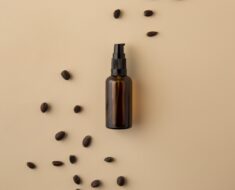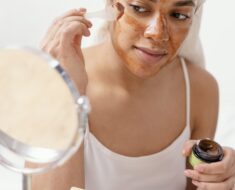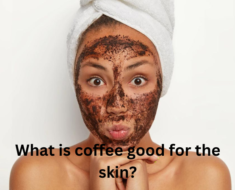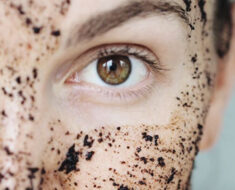Are your morning iced coffees a treat or a threat to your skin? That’s the question buzzing among coffee lovers and skincare enthusiasts alike.
Let’s delve into whether indulging in this chilled caffeine delight could be harming your skin in unexpected ways.
Iced coffee may seem harmless, but its impact on your skin could surprise you.
In this article, we’ll uncover the potential downsides of regularly enjoying iced coffee and how it might be affecting your skin’s health and appearance.
Curious to learn more about the relationship between iced coffee and skin health?
Our in-depth analysis, supported by insights from renowned dermatologists, will shed light on this intriguing topic.
Let’s explore together and make informed choices for healthier, happier skin.
Here does coffee cause ache.
What is iced coffee?
Iced coffee is a refreshing beverage made by cooling brewed coffee and serving it over ice.
To prepare it, coffee is brewed using hot water and then allowed to cool down. It can be served black or with added milk, cream, sugar, or flavorings like vanilla or caramel.
Some popular variations include cold brew, which is made by steeping coffee grounds in cold water for an extended period, resulting in a smoother and less acidic flavor.
Iced coffee is a favorite during hot weather or as a pick-me-up on busy days. It’s a versatile drink that can be customized to suit different tastes and preferences.
Additionally, it’s often served in cafes, restaurants, and coffee shops worldwide, making it readily available to coffee enthusiasts everywhere.
Here, coffee face pack for skin whitening.
Is iced coffee bad for your skin?
Iced coffee itself isn’t inherently bad for your skin, but excessive consumption or certain additives could potentially have negative effects.
Caffeine, a primary component in coffee, can lead to dehydration if consumed in large quantities, which may indirectly affect your skin’s health.

Dehydration can make your skin appear dull, dry, and less elastic.
Moreover, if you regularly add sugar, artificial sweeteners, or flavored syrups to your iced coffee, it could contribute to skin issues.
Excessive sugar consumption is associated with inflammation, which may exacerbate skin conditions like acne or eczema.
Here, coffe scrub for ache prone skin.
However, when consumed in moderation and with minimal added sugars or artificial ingredients, iced coffee is unlikely to have significant adverse effects on your skin.
Staying hydrated by drinking water alongside your coffee and maintaining a balanced diet are essential factors in supporting healthy skin.
Is cold coffee bad for health?
Cold coffee, such as iced coffee or cold brew, isn’t inherently bad for your health when consumed in moderation.
In fact, it can offer some benefits, such as providing antioxidants and potentially boosting alertness due to its caffeine content.
However, there are a few considerations to keep in mind. Cold coffee often contains added sugars, syrups, or creamers, which can increase calorie intake and contribute to health issues like weight gain or elevated blood sugar levels.
Additionally, excessive consumption of caffeine can lead to jitteriness, anxiety, disrupted sleep, and in some cases, dependency.
It’s essential to enjoy cold coffee as part of a balanced diet and lifestyle.
Opting for unsweetened or lightly sweetened varieties, using plant-based milk alternatives, and moderating your overall caffeine intake can help mitigate any potential negative health impacts associated with cold coffee consumption.
Is iced coffee bad for acne?
Iced coffee itself is not directly linked to causing acne.
However, certain factors associated with iced coffee consumption may contribute to acne development in some individuals.
For example, if you regularly consume sugary or flavored iced coffee drinks, the added sugars and artificial ingredients could potentially trigger acne flare-ups in sensitive individuals.
Excessive consumption of caffeine, found in coffee, may also lead to dehydration, which can indirectly impact your skin by making it appear dull and less healthy.
Moreover, if you have a dairy sensitivity or allergy and consume iced coffee with milk or cream, this could potentially lead to skin issues like acne due to an inflammatory response in your body.
Here, decafe coffee benefits for skin.
Overall, while iced coffee itself may not be bad for acne, it’s essential to be mindful of the ingredients in your coffee and how they may affect your skin, especially if you’re prone to acne or have sensitive skin.
Opting for simpler, less processed iced coffee options may be a better choice for maintaining skin health.
Is cold coffee good for skin?
Cold coffee can have some potential benefits for the skin when consumed in moderation and without excessive added sugars or unhealthy additives.
For instance, cold brew coffee and other types of chilled coffee can provide antioxidants that help fight free radicals, which can contribute to skin aging.
Antioxidants are known to promote skin health by reducing inflammation and protecting against UV damage.
Additionally, some studies suggest that caffeine, a key component in coffee, may have skincare benefits when applied topically.
Caffeine is believed to improve blood circulation and reduce inflammation, potentially helping to diminish the appearance of dark circles, puffiness, and cellulite.
However, it’s important to note that individual responses to coffee can vary, and some people may experience negative effects such as skin irritation or dehydration from excessive caffeine intake.
Therefore, it’s best to enjoy cold coffee in moderation as part of a balanced skincare routine and overall healthy lifestyle.
Here, is tea better for your skin then coffee?
Is coffee harmful for face skin?
Coffee itself isn’t inherently harmful to facial skin when used appropriately.
In fact, it has potential benefits due to its antioxidant properties, which can help protect the skin from free radicals and environmental damage.
Some skincare products also use coffee extracts or caffeine for their anti-inflammatory and firming effects, such as reducing puffiness or improving circulation.
However, using coffee grounds directly on the face as an exfoliant can be too harsh for the delicate facial skin, leading to irritation or micro-tears.
Additionally, excessive caffeine consumption can dehydrate the body, which may indirectly affect the skin’s appearance by making it look dull or dry.
It’s crucial to approach coffee in skincare cautiously and consider individual skin sensitivities.
Using skincare products containing coffee extracts or caffeine in moderation can offer potential benefits without causing harm to facial skin.
Is iced coffee bad for you?
Iced coffee itself isn’t inherently bad for you, but certain factors related to its consumption may have both positive and negative effects depending on individual health considerations.
On the positive side, iced coffee can provide antioxidants and a caffeine boost, which may improve alertness and concentration.
However, iced coffee often contains added sugars, syrups, or creamers, contributing to extra calories and potentially leading to weight gain or elevated blood sugar levels.
Excessive caffeine intake from iced coffee can also cause jitteriness, anxiety, disrupted sleep, and dependency in some individuals.
Here, is coffee and lemon good for skin.
Furthermore, for those sensitive to dairy or with lactose intolerance, iced coffee with milk or cream may cause digestive discomfort.
It’s important to enjoy iced coffee in moderation, opt for unsweetened or lightly sweetened varieties, and consider individual health needs when consuming it regularly.
Are iced coffee loaded with sugar?
The sugar content in iced coffee can vary significantly depending on how it’s prepared and any additional ingredients added.
Generally, plain black iced coffee without any added sugars or syrups contains minimal to no sugar.
However, many commercially available iced coffee drinks, especially those from cafes or ready-to-drink products, can be loaded with sugar.
These sweetened iced coffees often contain flavored syrups, sweetened condensed milk, or sugary creamers, leading to a high sugar content.
Some specialty iced coffee beverages can contain upwards of 20-50 grams of sugar per serving, which is a substantial amount.
To reduce sugar intake from iced coffee, opt for unsweetened or lightly sweetened versions, use natural sweeteners like stevia or monk fruit, or choose plant-based milk alternatives without added sugars.
Making your iced coffee at home allows you to control the ingredients and sugar content, offering a healthier option compared to many commercially prepared varieties.
Are Iced coffee drinks can contain more caffeine than you might expect?
Yes, iced coffee drinks can indeed contain more caffeine than one might expect, especially if they are made with concentrated brews or specialty coffee blends.
Cold brew coffee, for example, is known for its higher caffeine content compared to traditional hot brewed coffee because of its longer brewing time and higher coffee-to-water ratio.
Additionally, some coffee shops and cafes offer espresso-based iced coffee drinks like iced lattes or iced Americanos, which can have a significant caffeine kick due to the concentrated espresso shots used in their preparation.
It’s essential for coffee enthusiasts to be mindful of their caffeine intake, especially when consuming iced coffee drinks with higher caffeine concentrations.
Excessive caffeine consumption can lead to negative side effects such as jitteriness, increased heart rate, anxiety, and disrupted sleep patterns.
Opting for decaffeinated versions or moderating consumption can help individuals enjoy iced coffee drinks without experiencing caffeine-related issues.
9 iced coffee benefits for skin
Sure, let’s delve into nine potential benefits of iced coffee for the skin, each explained in detail.
1. Antioxidant Protection
Iced coffee, like its hot counterpart, contains antioxidants that can benefit the skin.
Antioxidants help neutralize free radicals, which are unstable molecules that can damage cells and contribute to premature aging.
Compounds like chlorogenic acid and melanoidins in coffee have antioxidant properties, shielding the skin from oxidative stress caused by factors such as UV radiation, pollution, and unhealthy diet.
2. Anti-Inflammatory Effects
Studies suggest that coffee possesses anti-inflammatory properties due to compounds like caffeine and polyphenols.
These properties may help calm skin inflammation, redness, and irritation. Inflammatory skin conditions like acne, eczema, and psoriasis could potentially benefit from the anti-inflammatory effects of iced coffee when used topically or consumed in moderation.
3. Improved Circulation
Caffeine, a key component in coffee, is known to stimulate blood flow.
When applied to the skin, caffeine can help improve circulation, leading to a brighter complexion and reduced puffiness.
Increased blood flow can also aid in delivering oxygen and nutrients to skin cells, promoting overall skin health and vitality.
4. Cellulite Reduction
Some skincare products contain caffeine due to its potential to reduce the appearance of cellulite.
Caffeine helps dilate blood vessels and temporarily tighten skin, creating a smoother appearance and reducing the visibility of cellulite.
Incorporating caffeine-containing iced coffee scrubs or creams into your skincare routine may offer temporary cellulite-reducing effects.
5. Dark Circles and Puffiness
The vasoconstrictive properties of caffeine can help shrink blood vessels and reduce dark circles and puffiness around the eyes.
Applying chilled coffee grounds or using caffeine-infused eye creams can help diminish the appearance of tired-looking eyes, resulting in a more refreshed and awake appearance.
6. Exfoliation and Brightening
Coffee grounds are a natural exfoliant that can slough off dead skin cells, revealing smoother and brighter skin underneath.
DIY coffee scrubs or commercially available coffee-based exfoliators can help improve skin texture, unclog pores, and promote a healthy glow.
7. UV Protection
While not a replacement for sunscreen, coffee contains compounds like cafestol and kahweol that may offer mild UV protection.
These compounds have been studied for their potential to absorb UV rays and reduce the risk of UV-induced skin damage.
However, it’s essential to use sunscreen alongside any skincare regimen for adequate sun protection.
8. Collagen Boost
Caffeine has been linked to stimulating collagen production, a crucial protein for maintaining skin elasticity and firmness.
Regular use of caffeine-infused skincare products or incorporating iced coffee into your diet may support collagen synthesis, leading to smoother and more supple skin over time.
9. Stress Reduction
Lastly, enjoying a soothing cup of iced coffee can help reduce stress levels, which can indirectly benefit the skin.
High stress levels are associated with increased cortisol production, which can lead to skin issues like acne, eczema, and premature aging.
By promoting relaxation and reducing stress, iced coffee can contribute to overall skin health and well-being.
Overall, while these benefits highlight the potential advantages of incorporating iced coffee into your skincare routine, individual responses may vary.
It’s essential to consider your skin type, any sensitivities or allergies, and consult with a dermatologist before making significant changes to your skincare regimen.
5 Iced coffee skin scrub
Certainly! Here are five different iced coffee skin scrub recipes, each with its unique benefits and properties.
1. Coffee and Coconut Oil Scrub
This simple yet effective scrub combines the exfoliating power of coffee grounds with the moisturizing properties of coconut oil.
Ingredients:
- 1/2 cup coffee grounds (preferably used coffee grounds)
- 2-3 tablespoons coconut oil (melted)
- Optional: a few drops of essential oil for fragrance (e.g., lavender, peppermint)
Instructions:
- Mix the coffee grounds and melted coconut oil in a bowl until well combined.
- If desired, add a few drops of essential oil for a pleasant scent and additional skincare benefits.
- Apply the scrub to damp skin in gentle circular motions, focusing on areas like elbows, knees, and rough patches.
- Rinse off thoroughly with warm water and pat dry.
- Follow up with a moisturizer to lock in hydration.
Benefits:
- Coffee grounds exfoliate dead skin cells, revealing smoother and brighter skin.
- Coconut oil moisturizes and nourishes the skin, leaving it soft and supple.
- The combination of coffee and coconut oil can help improve skin texture and promote a healthy glow.
2. Coffee and Honey Scrub
This scrub harnesses the antioxidant and antibacterial properties of honey, complementing the exfoliating benefits of coffee grounds.
Ingredients:
- 1/2 cup coffee grounds
- 2-3 tablespoons honey (preferably raw or organic)
- Optional: a squeeze of lemon juice for added brightness
Instructions:
- Mix the coffee grounds and honey in a bowl until you achieve a paste-like consistency.
- If desired, add a squeeze of lemon juice for its astringent and brightening effects.
- Apply the scrub to clean, damp skin and massage gently in circular motions.
- Leave the scrub on for a few minutes to allow the ingredients to work their magic.
- Rinse off thoroughly with lukewarm water and pat dry.
- Follow up with a lightweight moisturizer if needed.
Benefits:
- Coffee grounds exfoliate and stimulate circulation, promoting healthy skin cell turnover.
- Honey is a natural humectant that helps retain moisture, making it ideal for dry or sensitive skin types.
- The antibacterial properties of honey can help combat acne-causing bacteria and soothe inflammation.
3. Coffee and Yogurt Scrub
This scrub combines coffee’s exfoliating benefits with yogurt’s soothing and brightening properties, making it suitable for various skin types.
Ingredients:
- 1/2 cup coffee grounds
- 2-3 tablespoons plain yogurt (preferably Greek yogurt for its thicker consistency)
- Optional: a teaspoon of honey for added moisture
Instructions:
- Mix the coffee grounds and yogurt in a bowl until you achieve a smooth paste.
- For added moisture, you can incorporate a teaspoon of honey into the mixture.
- Apply the scrub to clean, damp skin and massage gently in circular motions.
- Leave the scrub on for 10-15 minutes to allow the ingredients to work their magic.
- Rinse off thoroughly with lukewarm water and pat dry.
- Follow up with your regular skincare routine.
Benefits:
- Coffee grounds exfoliate dead skin cells and promote circulation, giving the skin a healthy glow.
- Yogurt contains lactic acid, which gently exfoliates and brightens the skin while providing a soothing effect.
- The combination of coffee and yogurt can help refine pores, improve skin texture, and even out skin tone over time.
4. Coffee and Brown Sugar Scrub
This energizing scrub combines coffee grounds with brown sugar for a double dose of exfoliation, leaving your skin smooth and invigorated.
Ingredients:
- 1/2 cup coffee grounds
- 1/2 cup brown sugar (preferably organic)
- 2-3 tablespoons coconut oil (or olive oil)
Instructions:
- Mix the coffee grounds, brown sugar, and coconut oil in a bowl until well combined.
- Adjust the consistency by adding more oil if needed until you achieve a thick paste.
- Apply the scrub to damp skin and massage gently in circular motions, focusing on rough areas like elbows and heels.
- Leave the scrub on for a few minutes to allow the ingredients to work their magic.
- Rinse off thoroughly with warm water and pat dry.
- Follow up with a moisturizer to seal in hydration.
Benefits:
- Coffee grounds and brown sugar provide dual exfoliation, sloughing off dead skin cells and promoting cell turnover.
- Coconut oil hydrates and nourishes the skin, leaving it soft and smooth.
- This scrub can improve skin texture, unclog pores, and help prevent ingrown hairs, making it ideal for both face and body use.
5. Coffee and Oatmeal Scrub
This gentle yet effective scrub combines coffee with oatmeal, making it suitable for sensitive or easily irritated skin.

Ingredients:
- 1/2 cup coffee grounds
- 1/2 cup finely ground oatmeal (use a blender or food processor)
- 2-3 tablespoons honey (or yogurt for additional moisture)
Instructions:
- Mix the coffee grounds, ground oatmeal, and honey (or yogurt) in a bowl until well combined.
- Adjust the consistency by adding more honey or yogurt if needed until you achieve a thick paste.
- Apply the scrub to clean, damp skin and massage gently in circular motions.
- Leave the scrub on for a few minutes to allow the ingredients to work their magic.
- Rinse off thoroughly with lukewarm water and pat dry.
- Follow up with a gentle moisturizer if needed.
Benefits:
- Coffee grounds and oatmeal provide gentle exfoliation, making this scrub suitable for sensitive skin.
- Honey or yogurt adds moisture and soothes the skin, reducing redness and irritation.
- This scrub can help improve skin texture, reduce inflammation, and promote a healthy, radiant complexion.
Related faq’s
Is caffeine bad for your skin?
Caffeine itself isn’t inherently bad for your skin. In fact, it has potential benefits like antioxidant properties and temporary skin-tightening effects.
However, excessive caffeine consumption can lead to dehydration, which may indirectly affect skin health by causing dryness and dullness.
Additionally, some individuals may experience skin irritation or sensitivity to caffeine.
Moderation is key; consuming caffeine in reasonable amounts, whether through coffee or skincare products, is unlikely to cause harm and may even offer skincare advantages.
Does too much cold coffee cause increase in Acne?
There isn’t direct evidence linking too much cold coffee consumption to an increase in acne.
However, certain factors associated with cold coffee could potentially contribute to acne development in susceptible individuals.
For instance, if cold coffee drinks contain high levels of added sugars, syrups, or dairy products, these ingredients may trigger acne in some people due to their potential to increase inflammation and oil production in the skin.
Moreover, excessive caffeine intake, whether from cold coffee or other sources, can disrupt hormonal balance and lead to increased cortisol levels, which may indirectly influence acne formation.
Additionally, if cold coffee causes dehydration due to its diuretic effect, it could potentially affect skin health by making it appear dull and less vibrant.
Overall, while cold coffee itself may not directly cause acne, it’s essential to consider its overall composition, caffeine content, and individual skin sensitivities when evaluating its potential impact on acne-prone skin.
Can drinking coffee daily make the skin complexion darker?
Drinking coffee daily is unlikely to directly darken skin complexion.
While coffee does contain compounds like tannins that can temporarily stain teeth, it doesn’t have the same effect on skin.
However, excessive caffeine intake can lead to dehydration, which may make the skin appear dull and less radiant.
Additionally, if you consume your coffee with lots of sugar or cream, the added calories and potential insulin spikes could indirectly impact skin health and complexion over time.
Overall, moderation in coffee consumption and maintaining a balanced diet are more crucial for healthy skin than direct effects on skin tone.
Is drinking coffee really bad for acne-prone skin? I read/heard so much about this, but I can’t get through a day without a cup of coffee (180cc).I’ve been dealing with acne since 13 now I’m 22 & I’m getting more unmotivated for my face to get better
For most people with acne-prone skin, moderate coffee consumption is unlikely to be a direct cause of acne. However, individual reactions can vary.
Coffee itself isn’t inherently bad for acne, but certain additives like sugar, dairy, or excessive caffeine could potentially trigger breakouts in sensitive individuals.
It’s essential to monitor how your skin responds to coffee and adjust your consumption accordingly. Remember, stress and lack of motivation can also impact skin health.
Focus on a consistent skincare routine, a balanced diet, and managing stress to support your skin’s overall well-being.
Conclusion:
There’s no direct link between iced coffee and skin health. However, excessive caffeine can dehydrate skin, leading to dullness.
Balance is key; enjoy iced coffee in moderation and stay hydrated to maintain healthy, glowing skin.








